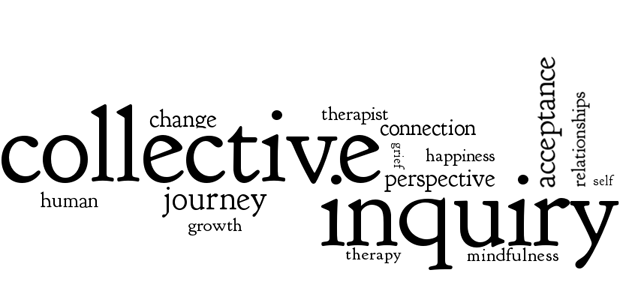

(Illustration by Wes Bausmith / Los Angeles Times)
I stumbled across this article today called: How not to say the wrong thing and thought it was incredible. I wrote a post previously about not telling people not to be sad, but this expands on it in a rich, tangible way (and especially helpful for very sensitive cases).
In this “Ring Theory,” you draw rings in this system (read article for an explanation and see image to right, rules below), for working out who you should give comfort to and who you should turn to comfort to. This is based on your position in the ring and how close or far you are from the center (the person in the current trauma- could be physical, emotional, financial, romantic crisis of any sort).
I find this helpful, because I feel like I have been in situations where I am in the center, and where I am one of the rings furthest from the center. Either way, it can be a delicate balance of wanting to support others, but in turn needing your own space to debrief, vent, or grieve. When in the center, I also find it can be difficult to just ask people for what I need- especially when I know they have good intentions.
I’ve felt guilt before at needing this kind of space, when the person in the center is going through something far worse than I have. However, being human, I too need an outlet. This is something I experienced as a therapist, or even as a friend. Emotionally and physically supporting a person is not easy, but it’s part of what I do- and if I don’t take the time for my own health, I wouldn’t be able to do it as well.
The main point is: Saying what you need to say is acceptable- but the timing and WHO you say it to can be critical in relationships and supporting those who need it the most.
Here are the ring rules according to the author, Susan Silk:
The person in the center ring can say anything she wants to anyone, anywhere. She can kvetch and complain and whine and moan and curse the heavens and say, “Life is unfair” and “Why me?” That’s the one payoff for being in the center ring.
Everyone else can say those things too, but only to people in larger rings.
When you are talking to a person in a ring smaller than yours, someone closer to the center of the crisis, the goal is to help. Listening is often more helpful than talking. But if you’re going to open your mouth, ask yourself if what you are about to say is likely to provide comfort and support. If it isn’t, don’t say it. Don’t, for example, give advice. People who are suffering from trauma don’t need advice. They need comfort and support. So say, “I’m sorry” or “This must really be hard for you” or “Can I bring you a pot roast?” Don’t say, “You should hear what happened to me” or “Here’s what I would do if I were you.” And don’t say, “This is really bringing me down.”
If you want to scream or cry or complain, if you want to tell someone how shocked you are or how icky you feel, or whine about how it reminds you of all the terrible things that have happened to you lately, that’s fine. It’s a perfectly normal response. Just do it to someone in a bigger ring.
Comfort IN, Dump OUT.
Share your thoughts
No Thoughts About how not to say the wrong thing